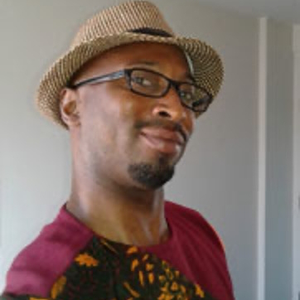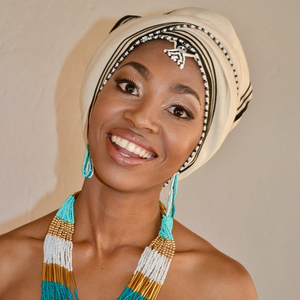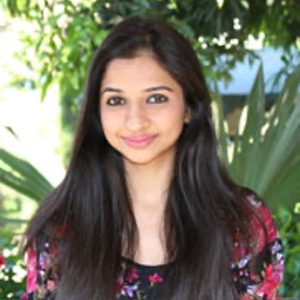
Elikem (Alfred) Kunutsor
Doctoral candidate at University of Cape TownElikem Alfred Kunutsor lives in Accra, Ghana and is a PhD candidate at the University of Cape Town (UCT), South Africa. He holds an MA and BA Honours in Dramatic Arts from the University of the Witwatersrand (Wits), South Africa. Elikem majored in Physical Theatre and Design. His approach to the performing arts is rooted in embodied, physical presence rather than genre classifications.
Designing a regenerative African performance making practice: A response to emerging cultures
Like the severed umbilical cord from its source of life, I go through a proverbial journey to find the reconnection of the disconnect in my performance making process.
Torsike bu efe dzortofe de wo mie na.
-A river that forgets its source will soon dry out.
This study explores African performance making practices focusing on the holistic nature of performance within African traditions in order to fill a gap of disconnect as well as attainment of cultural re-union. It draws on Ghanaian and Anlo-Ewe traditions including Yeweh, an ancient religious philosophical system, in a combination of a Practice-led research and an auto-ethnographic approach that culminated into a design of a new performance making process and practice.

Linda (Mdena) Thibedi
Doctoral candidate at Drama For Life, University of the WitwatersrandLinda (Mdena) Thibedi, lives in Johannesburg, South Africa and is a PhD candidate at Drama For Life, University of the Witwatersrand (Wits), Johannesburg South Africa. She is a dancer, performer, lecturer and a registered Drama Therapist with the Health Professions Council of South Africa (HPCSA). Linda graduated from Wits University with an Honours degree in 2013. In 2015, she completed her Master’s Degree in Drama Therapy at Wits. Linda became an Expressive Movement facilitator in 2016 and in the same year was chosen to be a part of the first Drama for Life Theatre Company. In 2017, she started Lecturing at Wits in the Drama for Life drama therapy Honours and MA programs. Linda has been a member of the Drama for Life steering committee/senior management team since 2019. Outside of her academic commitments at the University, Linda sits on the South African National Association of Arts Therapies (SANATA) EXCO as a co-chair of the research committee.
Bodies in crisis: exploring how the body, as a tool in Drama Therapy and Dance Therapy, offers insight into emotional, physical and psychological effects of teaching online.
This research is titled Bodies in crisis: exploring how the body, as a tool in Drama Therapy and Dance Therapy, offers insight into emotional, physical and psychological effects of teaching online. The reasoning and inspiration behind this title is linked to my curiosity around human responses and processing in the use of online platforms for teaching purposes. What sparked this thought was the worldwide outbreak of COVID-19. Therefore, my research is focused on online teaching during the COVID-19 pandemic. As a lecturer and Drama Therapist I also hope to gain insight into other lecturer’s experiences of engaging with pedagogies like Drama Therapy and Dance Therapy and how things have had to shift or change as a result of becoming online practices.

Devika Mehta
Doctoral candidate at Drama For Life, University of the WitwatersrandDevika Mehta lives in Mumbai, India and is a doctoral candidate at Drama For Life, University of the Witwatersrand, SA. She is a practicing Dance Movement Psychotherapist (R-DMP) registered with the Association of Dance Movement Psychotherapy, UK (ADMP(UK)) and Indian Association of Dance Movement Therapy (IADMT). She is the Course Director for the Post Graduate Diploma Program in Expressive Arts Therapy at St. Xavier’s College, Mumbai and faculty for Diploma courses in Dance Movement Therapy.
Revealing Cultural Imprints in Preadolescence through a Decolonized Expressive Arts Program - An Action Research Study
With this doctoral research, I propose to create a decolonized intermodal expressive arts program which draws on elements from Indian indigenous art forms, to offer a safe space for identity exploration. The aim is to understand the relationship of the arts to identity exploration in the pre-adolescence phase of 10 year to 12 years of age through the use of culturally familiar arts media. Using action research as methodology, two cycles of the program implementation will be conducted after integrating feedback following the first cycle. The community will be consulted via the appointment of a locally based advisory panel and the knowledge generated out of this program will be discussed with this group during dissemination outreach. This research study is intended to address the knowledge gap in the literature pertaining to the use of indigenous art-forms with this age group, as well as to examine its relationship to identity exploration and to identify how the expressive arts might be used in this way in the Indian cultural context.